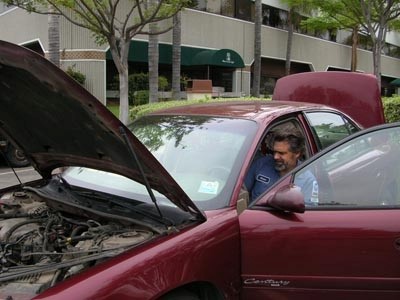Lemon Law Questions to Ask Before Buying a Certified Pre-Owned Car

Planning to buy a pre-owned car? Here are the lemon law questions to ask a manufacturer before purchasing a used car.
When it comes to buying a pre-owned car, it is crucial to ask a dealer about the car’s history. Check if a vehicle has been previously under the lemon law, meaning the issue has not been resolved even after multiple repair attempts, or if the car has been out of service for a long time.
Lemon Law protects consumers by requiring dealers to replace or repair defective vehicles within a limited period of time or provide a full refund of the purchase price if the vehicle fails to meet quality and performance standards.
In this blog, we are going to discuss the lemon law questions to ask a dealer before buying a pre-owned car, and how to check the vehicle’s condition.
Lemon Law Questions to Ask a Dealer Before Buying a Pre-Owned Car
It is crucial to ask for a complete maintenance and accident report, check the license and the performance of a pre-owned car. Here, we have listed some important Lemon Law questions to ask a manufacturer before buying a pre-owned vehicle.
1: Can I get the complete maintenance history records?
Request the full service records, including the maintenance, repair attempts, and part replacements, to know the car’s history. If a previous owner didn’t keep up with the vehicle’s maintenance needs, it can result in costly issues and dangerous outcomes.
2: Is the vehicle’s engine working properly?
Check for any unusual noise from the engine, smoke, and leaks to understand their condition and ensure the engine is working properly. If you fail to check the engine of the vehicles, it can cause major issues resulting in costly repairs over time.
3: Can I get the manufacturer’s warranty transferred?
Confirm whether the remainder of the manufacturer’s warranty is still valid and can be transferred to you. If the vehicle you are considering buying is under warranty, it can save you a significant amount of money.
4: Can I get a pre-purchase inspection?
Ask your seller for permission to have an independent mechanic perform a pre-purchase inspection to check the vehicle’s performance. This can help you identify hidden issues that the CPO inspection may have missed.
5: Has the car been in any accident or other damage?
Check the vehicle’s report history to see if there are any accident reports, including major damage to the vehicle’s exterior or structural parts.
6: What is the length and coverage of the manufacturer’s CPO warranty?
Ask about the length and coverage of the CPO’s warranty, as it is crucial to understand what is covered by the manufacturer.
You must focus on these important considerations before buying a used vehicle, which can help you make an informed decision.
What to Check Yourself?
1: Vehicle Condition: Conduct a thorough inspection and check for dents and damage on the vehicle’s exterior and interior parts, such as the dashboard, seats, and headliners.
2: Tires: Look for the condition of all four tires to ensure they are in good condition and have adequate tread.
3: Check Electrical Components: Check the functioning of all the electrical components such as the headlights, indicators, power windows, door locks, air conditioning and sound system.
4: Read the Documents: Check all the paperwork carefully, and ensure all documents are clear and the owner has everything necessary.
The Bottom Line
It is crucial to understand the Lemon Law when buying a pre-owned certified car from a seller. This law provides a safety net, ensuring a purchased vehicle lives up to the standard and protecting consumers from being stuck with a defective vehicle.
At Car Inspectors, we provide ASE-certified technicians who offer car inspection services with greater accuracy than the average mechanic before you buy a used car.
Get in touch with us to know more about Lemon Law questions to ask.
FAQ’s
When do Lemon Laws apply?
Lemon law can be applied when a used vehicle has a significant defect that cannot be fixed even after multiple attempts, or if the car is out of service for a long time.
How long does the Lemon Law process take?
The time period of a Lemon law process can range from 60 days to months to years, depending on the case complexity and the manufacturer’s cooperation.
What is the difference between a Lemon Law and a warranty claim?
A warranty claim seeks repairs for a defective product, whereas Lemon Laws are pursued when repeated repair attempts while under warranty fail to meet performance standards.
Are commercial vehicles covered under Lemon Laws?
No, Commercial vehicles are not covered under Lemon laws, as these laws are especially designed to protect consumers, not businesses.
